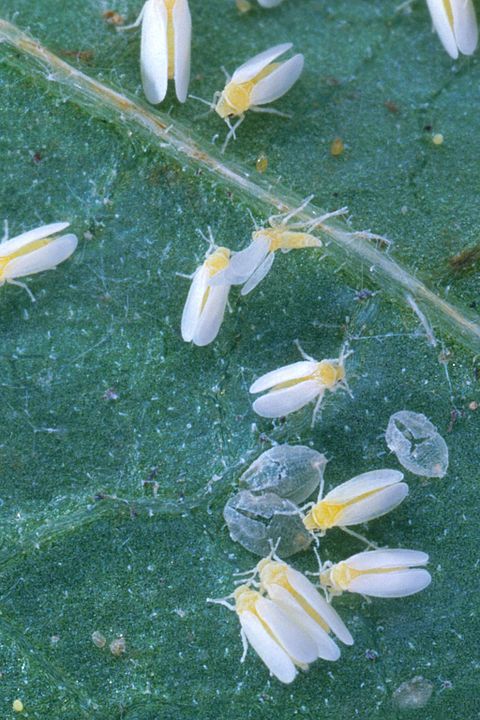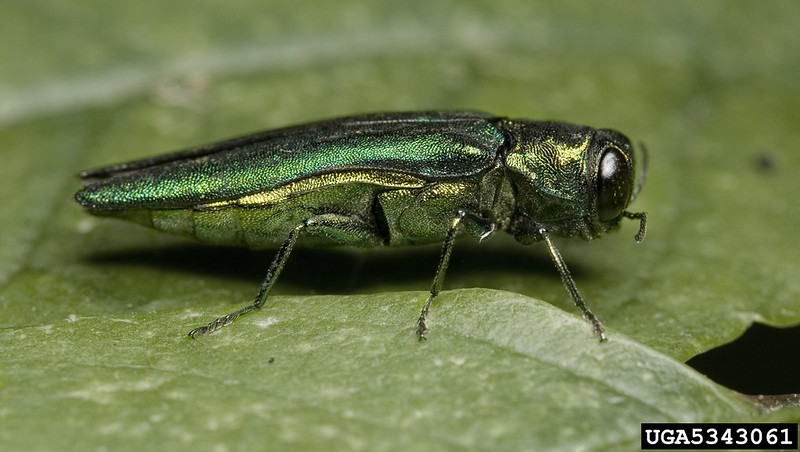This month for #IYPH2020, we’re looking at how plant pests and diseases spread around the world, and how research helps keep UK farms, forests and gardens safe. Here are just some of the pests and diseases from around the world that have the UK on high alert right now:
The silverleaf whitefly causes huge damage to crops around the world, partly because it can carry over 110 infectious plant viruses. It doesn’t like cold weather but can thrive on glasshouse crops in Europe. The UK is one of few parts of Europe where it hasn’t yet established
It’s also resistant to many insecticides. Researchers at @JohnInnesCentre are developing a method called RNA interference technology, which could help to control whiteflies without pesticides: https://www.jic.ac.uk/whiteflies/
Plane trees aren’t just a scenic addition to urban areas - they provide shade, lower temperatures and help control air pollution. Plane trees in Europe are being affected by a fatal disease called plane wilt which has been spreading since it was introduced from the US in WWII
It spreads on imported trees and wood products, including sawdust. Trade restrictions have helped to keep it out of the UK so far, but it could dramatically alter our towns and cities if introduced.
Xylella fastidiosa is a bacterial disease that affects many wild, ornamental and agricultural woody plants and trees, including lavender, our plant of the month. Since its arrival in Europe in 2016, it’s devastated olive groves in Italy
Research by the @BRIGITxylella consortium is helping to reduce the risk of Xylella arriving in the UK and prepare for outbreaks. Watch their video on Xylella, narrated by Dame Helen Mirren:
Candidatus Liberibacter solanacearum causes zebra chip, a potato disease that’s caused huge losses in NZ and the US. Another strain infects carrots. While this strain has been found in the UK, it doesn’t appear to be causing widespread damage yet
Image: USDA, CC-BY 2.0
Image: USDA, CC-BY 2.0
We’ve awarded funding to @FeraScience to study Ca. L. solanaceum’s potential to become a significant problem in the UK, and look at how trade policy and habitat management could help manage the risk
The emerald ash borer is a beautiful but destructive beetle that can kill ash trees, which are already threatened by #AshDieback in the UK. What’s more, @BBSRC-funded research suggests trees that can resist dieback may be more vulnerable to ash borers
In our next thread, we’ll look at some of the ways that research and innovation can help track, understand and prevent the international spread of plant pests and diseases #IYPH2020

 Read on Twitter
Read on Twitter






